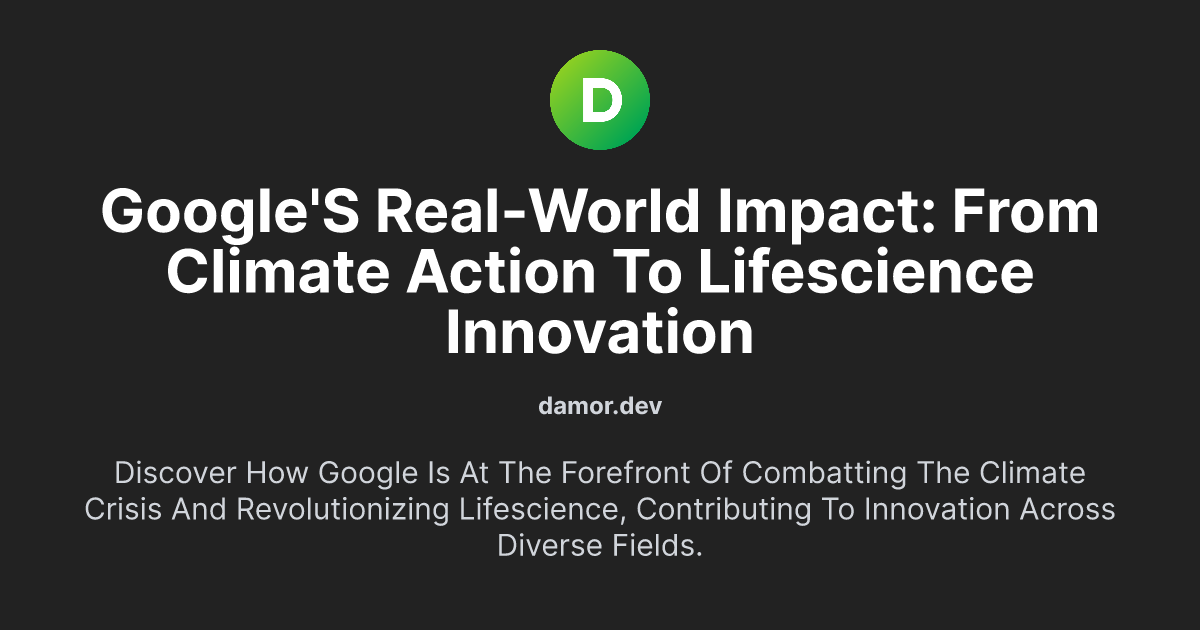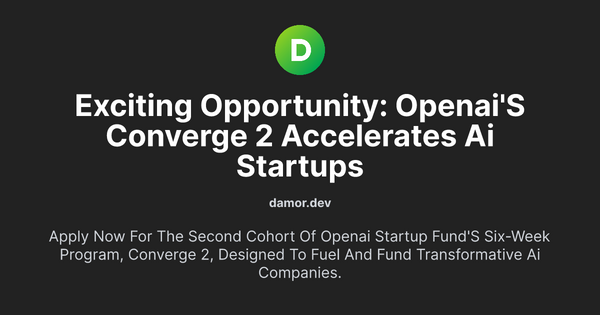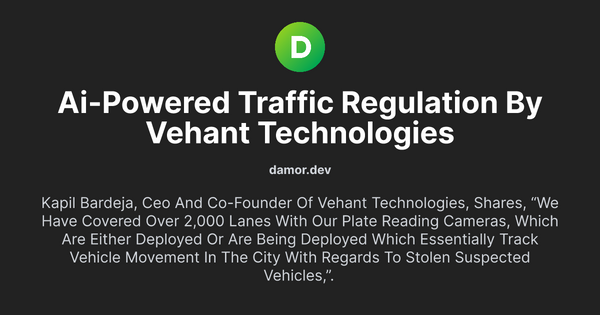Google's Real-World Impact: From Climate Action to Lifescience Innovation

Google's Impact in Simple Terms: Weather, Health, Traffic, and More
In the vast world of technology, Google is doing some pretty cool things that directly affect our lives. Let's break it down in a way that's easy to understand.
1. Weather Predictions with GraphCast: Google DeepMind recently introduced GraphCast, an open-source AI weather forecasting model. This high-tech model uses machine learning and graph neural networks to predict global weather conditions up to 10 days in advance. It's super accurate, outperforming traditional systems and even predicted Hurricane Lee's landfall nine days before it happened.
2. Climate Science and Health with MetNet-3 and AlphaFold: Google is not only about weather. They are diving into climate science and health too. MetNet-3, another weather forecasting model, provides detailed predictions up to 24 hours ahead. On the health front, Google's AlphaFold model helps in developing drugs for gene therapy, malaria vaccine, and more. The latest version, AlphaFold-latest, is even more powerful, predicting structures from almost all molecules.
3. Traffic Management with 'Project Green Light': Google is using AI to manage traffic effectively. 'Project Green Light' optimizes traffic signals based on Google Maps data, aiming to improve traffic flow and reduce pollution at intersections. Early results suggest a potential 30% reduction in pollution.
4. Environmental Monitoring with Google Maps: Google Maps isn't just for directions; it now helps monitor the environment too. Features like Solar, Air Quality, and Pollen APIs provide information on rooftop solar potential, air quality, and pollen count. This is useful for making health-conscious decisions.
5. Google's Open-Source Contributions: Google is not keeping all this tech to themselves. They are sharing it with the world. Models like FourCastNet and GraphCast are open source, as is AlphaFold. Even popular tools like TensorFlow and Keras are open source and widely used in machine learning.
6. A Call for Openness: While Google is sharing a lot, there's a suggestion to make more things open source, especially the PaLM language model. Opening up these tools can help researchers and developers, accelerate AI research, and bridge the digital divide.
In conclusion, Google is not just a search engine; it's actively working on projects that impact our daily lives. From predicting the weather to helping with health issues and managing traffic, Google is using technology for the better. And the best part? They're sharing their innovations with the world.


![[Solved] ZlibError:zlib:
unexpected end of file - payload](/content/images/size/w600/2024/02/Screenshot-2024-02-18-143905.png)


